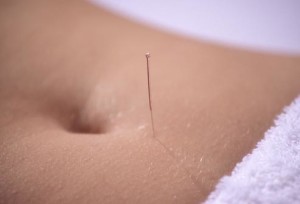A Closer Look: Study Shows Acupuncture’s Positive Effects on OIC
Last week, we discussed how a common and under-treated side effect of opioid use–opioid-induced constipation (OIC)–can undermine the very quality of life the opioids are meant to promote. But it doesn’t have to be this way.
Even if acupuncture alone can’t replace opioid use in your personal pain management plan, it has been proven to minimize most side-effects, including OIC.
A look at the studies
Let’s take another look at the recent study that focused exclusively on tumor patients suffering from OIC, where acupuncture was used to treat constipation resulting from the use of morphine-sulfate controlled release tablets. Since the morphine tablets are only used to treat pain that is considered severe enough to require around-the-clock management, the pursuant side-effects were also considered more severe than those associated with other opioids, like codeine, hydrocodone, and fentanyl.
Study design
Of the 66 tumor patients selected for inclusion in the study based on their suffering from OIC, all were equally randomized into two groups: one that received acupuncture treatment and a control group that received a citrate-mosapride tablet which was meant to stimulate the digestive tract.
The treated group was given five consecutive days of 30 minute acupuncture sessions using 30-gauge, 2-inch needles at bilateral ST 36 and ST 25 acupuncture points. Traditionally, the ST 36, or Zusanli acupuncture point, located just below the knee, is associated with benefitting the stomach and spleen, whereas the ST 25, or Tianshu acupuncture point, beside the belly button, is also used to regulate the intestines. These points, both located along the stomach meridian, are commonly associated with promoting the health of the digestive tract.
At the end of the five days, the “overall therapeutic effect” and assessment of constipation in both groups were estimated and measured. Constipation assessments were made on the basis of frequency, time, and difficulty degree of defecation, as well as stool properties.
Positive results
Based on these metrics, researchers found that while both the treated group and control group experienced positive changes in each measurement category (frequency, time, difficulty degree of defecation, and stool properties), a significant difference in degree of improvement was observed in the group that received only 5 short daily acupuncture treatments.
The overall effective rate was 97.0% in the treated group, versus 87.9% in the control group, where the scores for improvement in each category among the 97% were also higher, versus a laxative.
Why hesitate?
When the studies show such promising results, why wait? Compared to other drug or surgical palliatives, acupuncture’s non-invasive, low side-effect efficacy is too good an option not to investigate. Get in touch with us today to schedule a consultation.



